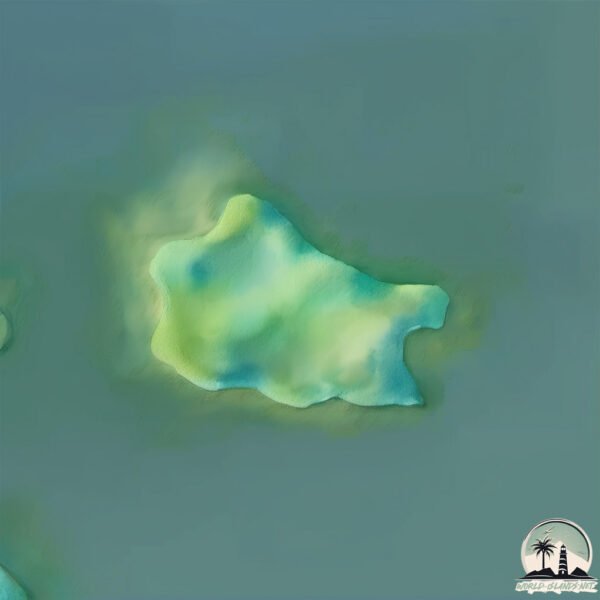Ostrov Morskaya Vydra

Welcome to Ostrov Morskaya Vydra, a Continental island in the Sea of Okhotsk, part of the majestic Pacific Ocean. This guide offers a comprehensive overview of what makes Ostrov Morskaya Vydra unique – from its geography and climate to its population, infrastructure, and beyond. Dive into the details:
- Geography and Size: Explore the island’s size and location.
- Climate and Weather: Weather patterns and temperature.
- Topography and Nature: Uncover the natural wonders of the island.
- Infrastructure and Travelling: Insights on reaching, staying, and making the most of your visit.
- News and Headlines: Latest News.
Geography and size of Ostrov Morskaya Vydra
Size: 0.112 km²
Coastline: 1.9 km
Ocean: Pacific Ocean
Sea: Sea of Okhotsk
Continent: Asia
Ostrov Morskaya Vydra is a Tiny Island spanning 0.112 km² with a coastline of 1.9 km.
Archipel: Kuril Islands – A volcanic archipelago stretching from Japan to Russia, known for their rugged landscapes and abundant marine life.
Tectonic Plate: Okhotsk – Located in the northwest Pacific Ocean, the Okhotsk Plate encompasses the Sea of Okhotsk, the Kamchatka Peninsula, and parts of Japan. It’s involved in complex interactions with the Pacific and North American plates, contributing to seismic activity in the region.
The geographic heart of the island is pinpointed at these coordinates:
Latitude: 46.47693497 / Longitude: 150.8299709
Climate and weather of Ostrov Morskaya Vydra
Climate Zone: Continental
Climate Details: Subarctic Climate
Temperature: Cold Summer
Climate Characteristics: Characterized by long, extremely cold winters and short, cool summers, often found in northern latitudes of North America and Eurasia.
Topography and nature of Ostrov Morskaya Vydra
Timezone: UTC+11:00
Timezone places: Asia/Vladivostok
Max. Elevation: -103 m
Mean Elevation: -103 m
Vegetation: Agricultural Mosaic
Tree Coverage: 59%
The mean elevation is -103 m. Remarkably, this unique island barely emerges above the sea level, showcasing nature’s fascinating interplay with the ocean. The island is characterized by Plains: Flat, low-lying lands characterized by a maximum elevation of up to 200 meters. On islands, plains are typically coastal lowlands or central flat areas.
Dominating Vegetation: Agricultural Mosaic
A mix of cropland and natural vegetation, often seen in rural landscapes where agricultural fields are interspersed with patches of natural habitats. Ostrov Morskaya Vydra has a tree cover of 59 %.
Vegetation: 1 vegetation zones – Minimal Diversity Island
These islands exhibit the most basic level of ecological diversity, often characterized by a single dominant vegetation type. This could be due to extreme environmental conditions, limited land area, or significant human impact. They represent unique ecosystems where specific species have adapted to thrive in these singular environments.
Infrastructure and Travelling to Ostrov Morskaya Vydra
Does the island have a public airport? no.
There is no public and scheduled airport on Ostrov Morskaya Vydra. The nearest airport is Iturup Airport, located 347 km away.
Does the island have a major port? no.
There are no major ports on Ostrov Morskaya Vydra. The closest major port is SHAKOTAN, approximately 530 km away.
The mean population of Ostrov Morskaya Vydra is 1 per km². Ostrov Morskaya Vydra is Gently Populated. The island belongs to Russia.
Continuing your journey, Ostrov Brat Chirpoyev is the next notable island, situated merely km away.
Russia is classified as Emerging region: BRIC: Brazil, Russia, India, and China – Economies noted for their rapid growth and increasing influence on global affairs. The level of income is Upper middle income.
News – Latest Updates and Headlines from Ostrov Morskaya Vydra
Stay informed with the most recent news and important headlines from Ostrov Morskaya Vydra. Here’s a roundup of the latest developments.
Please note: The data used here has been primarily extracted from satellite readings. Deviations from exact values may occur, particularly regarding the height of elevations and population density. Land area and coastline measurements refer to average values at mean high tide.
